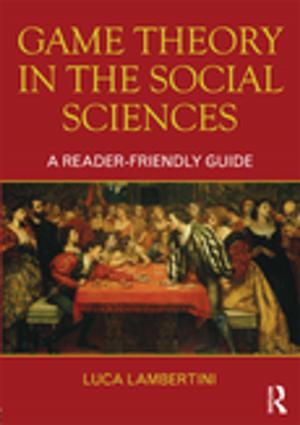Europe
A Cultural History
Nonfiction, Reference & Language, Language Arts, Linguistics, History, British| Author: | Peter Rietbergen | ISBN: | 9781317606291 |
| Publisher: | Taylor and Francis | Publication: | November 27, 2014 |
| Imprint: | Routledge | Language: | English |
| Author: | Peter Rietbergen |
| ISBN: | 9781317606291 |
| Publisher: | Taylor and Francis |
| Publication: | November 27, 2014 |
| Imprint: | Routledge |
| Language: | English |
This third, revised and augmented edition of Peter Rietbergen’s highly acclaimed Europe: A Cultural History provides a major and original contribution to the study of Europe. From ancient Babylonian law codes to Pope Urban’s call to crusade in 1095, and from Michelangelo on Italian art in 1538 to Sting’s songs in the late twentieth century, the expressions of the culture that has developed in Europe are diverse and wide-ranging. This exceptional text expertly connects this variety, explaining them to the reader in a thorough and yet highly readable style.
Presented chronologically, Europe: A Cultural History examines the many cultural building blocks of Europe, stressing their importance in the formation of the continent’s ever-changing cultural identities. Starting with the beginnings of agricultural society and ending with the mass culture of the early twenty-first century, the book uses literature, art, science, technology and music to examine Europe’s cultural history in terms of continuity and change. Rietbergen looks at how societies developed new ways of surviving, believing, consuming and communicating throughout the period. His book is distinctive in paying particular attention to the ways early Europe has been formed through the impact of a variety of cultures, from Celtic and German to Greek and Roman. The role of Christianity is stressed, but as a contested variable, as are the influences from, for example, Asia in the early modern period and from American culture and Islamic immigrants in more recent times.
Since anxieties over Europe's future mount, this third edition text has been thoroughly revised for the late twentieth and early twenty-first centuries. Moreover, it now also includes a 'dossier' of some seventeen essay-like vignettes that highlight cultural phenomena said to be characteristic of Europe: social solidarity, capitalism, democracy and so forth. With a wide selection of illustrations, maps, excerpts of sources and even lyrics from contemporary songs to support the arguments, this book both serves the general reader as well as students of historical and cultural studies.
This third, revised and augmented edition of Peter Rietbergen’s highly acclaimed Europe: A Cultural History provides a major and original contribution to the study of Europe. From ancient Babylonian law codes to Pope Urban’s call to crusade in 1095, and from Michelangelo on Italian art in 1538 to Sting’s songs in the late twentieth century, the expressions of the culture that has developed in Europe are diverse and wide-ranging. This exceptional text expertly connects this variety, explaining them to the reader in a thorough and yet highly readable style.
Presented chronologically, Europe: A Cultural History examines the many cultural building blocks of Europe, stressing their importance in the formation of the continent’s ever-changing cultural identities. Starting with the beginnings of agricultural society and ending with the mass culture of the early twenty-first century, the book uses literature, art, science, technology and music to examine Europe’s cultural history in terms of continuity and change. Rietbergen looks at how societies developed new ways of surviving, believing, consuming and communicating throughout the period. His book is distinctive in paying particular attention to the ways early Europe has been formed through the impact of a variety of cultures, from Celtic and German to Greek and Roman. The role of Christianity is stressed, but as a contested variable, as are the influences from, for example, Asia in the early modern period and from American culture and Islamic immigrants in more recent times.
Since anxieties over Europe's future mount, this third edition text has been thoroughly revised for the late twentieth and early twenty-first centuries. Moreover, it now also includes a 'dossier' of some seventeen essay-like vignettes that highlight cultural phenomena said to be characteristic of Europe: social solidarity, capitalism, democracy and so forth. With a wide selection of illustrations, maps, excerpts of sources and even lyrics from contemporary songs to support the arguments, this book both serves the general reader as well as students of historical and cultural studies.















